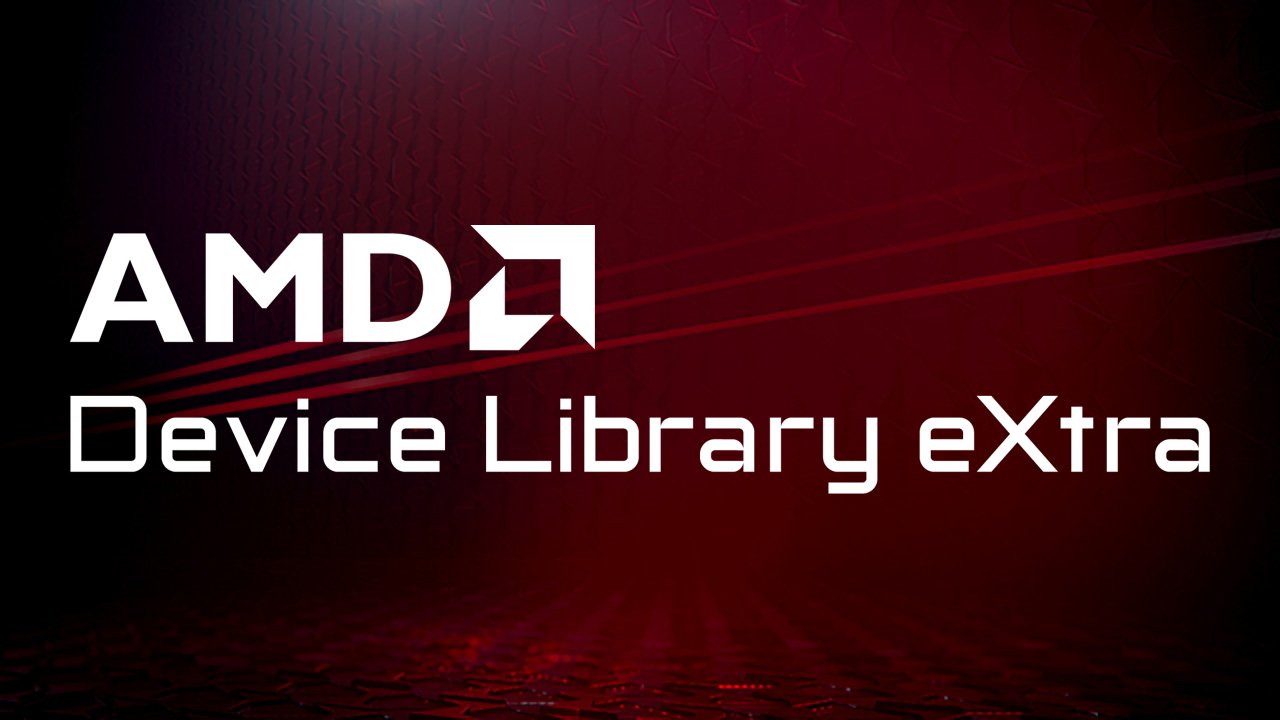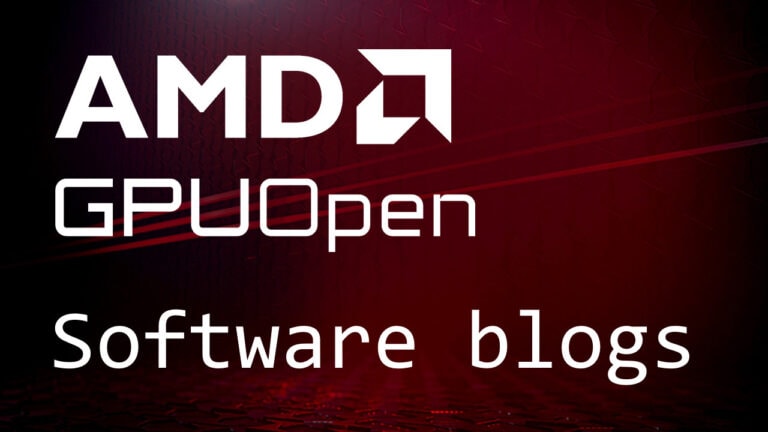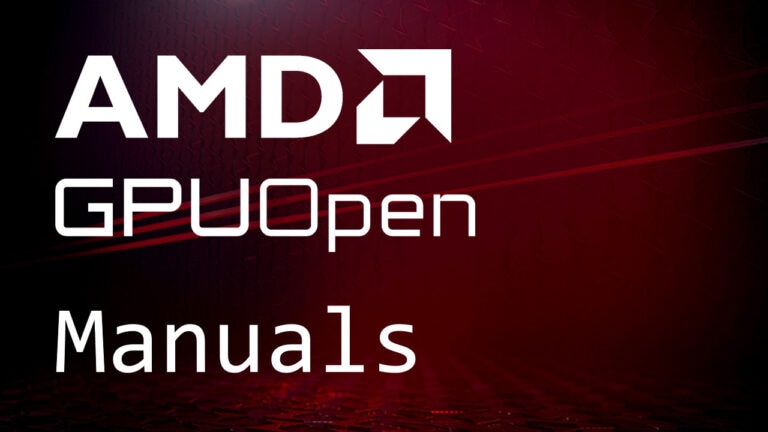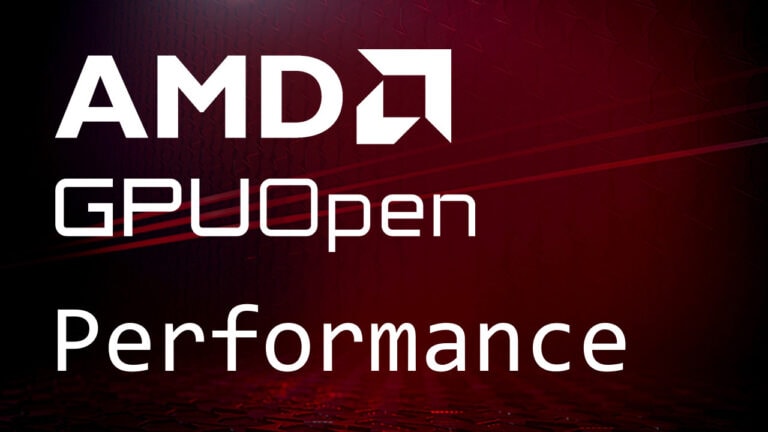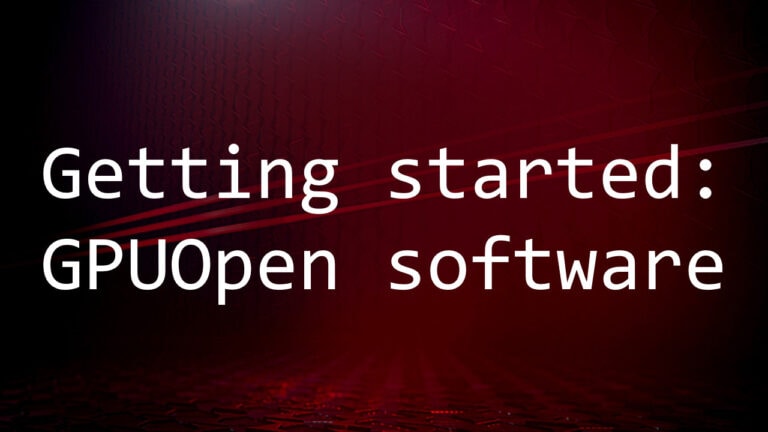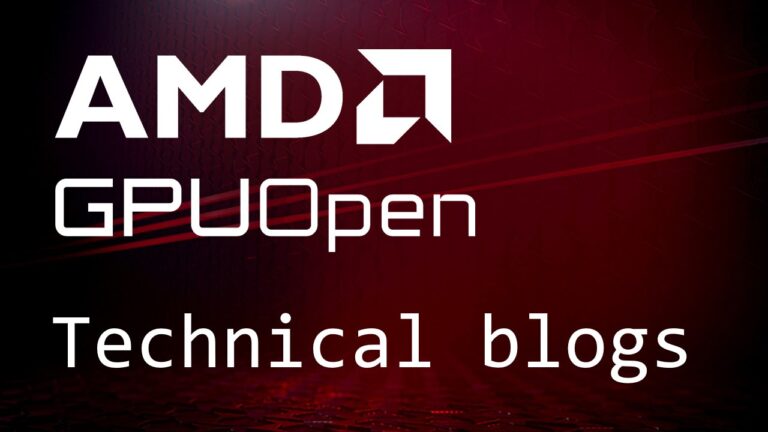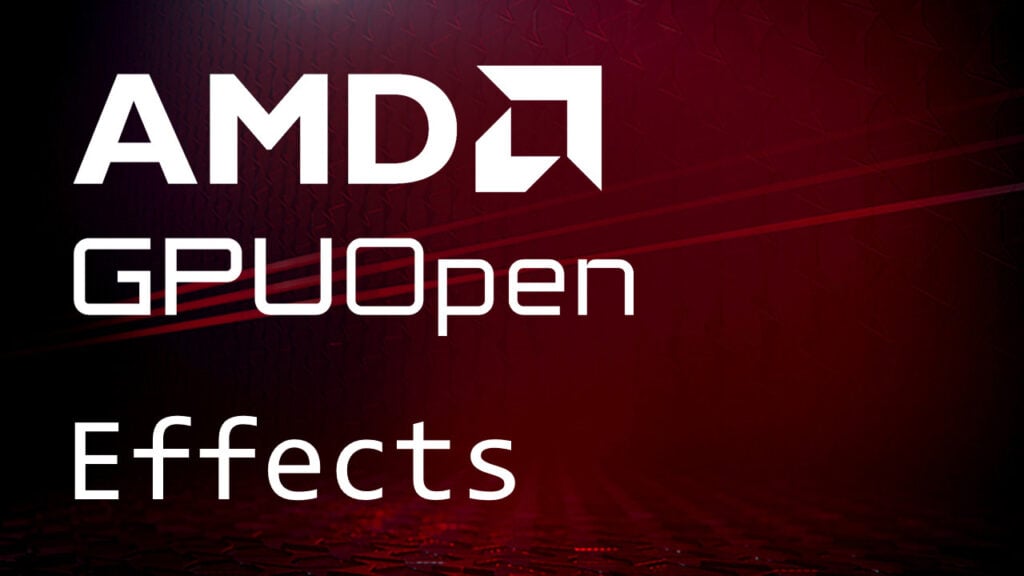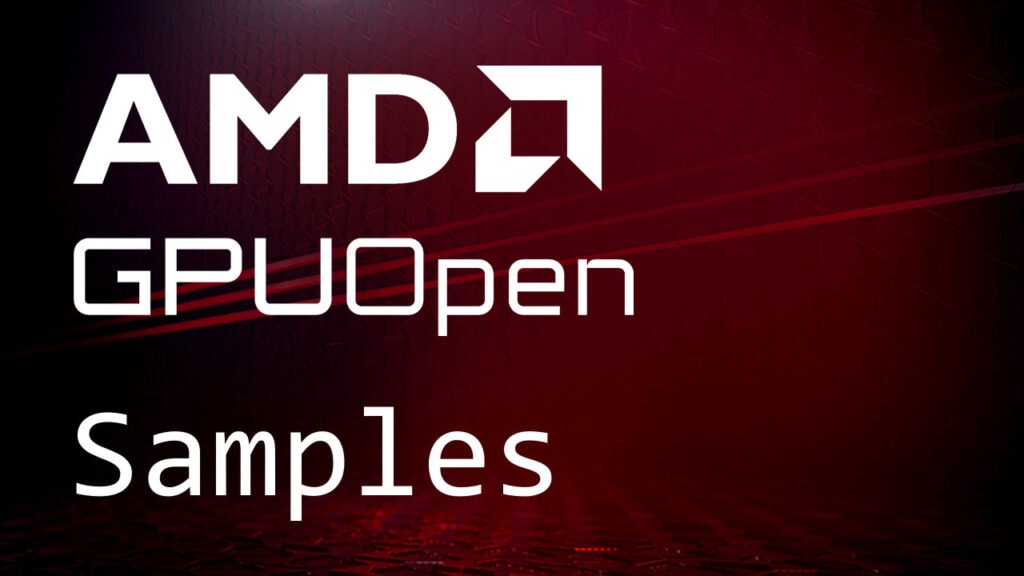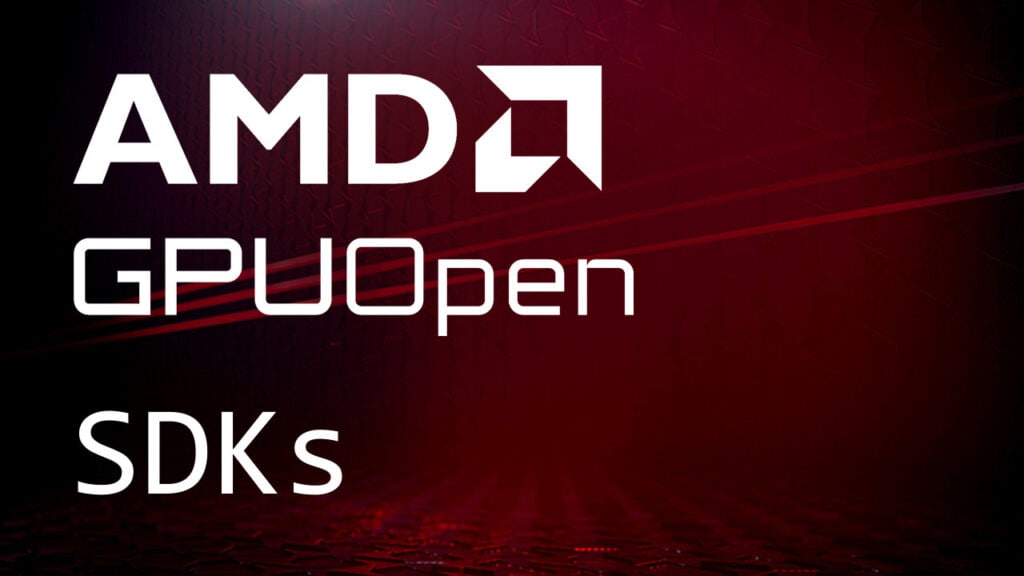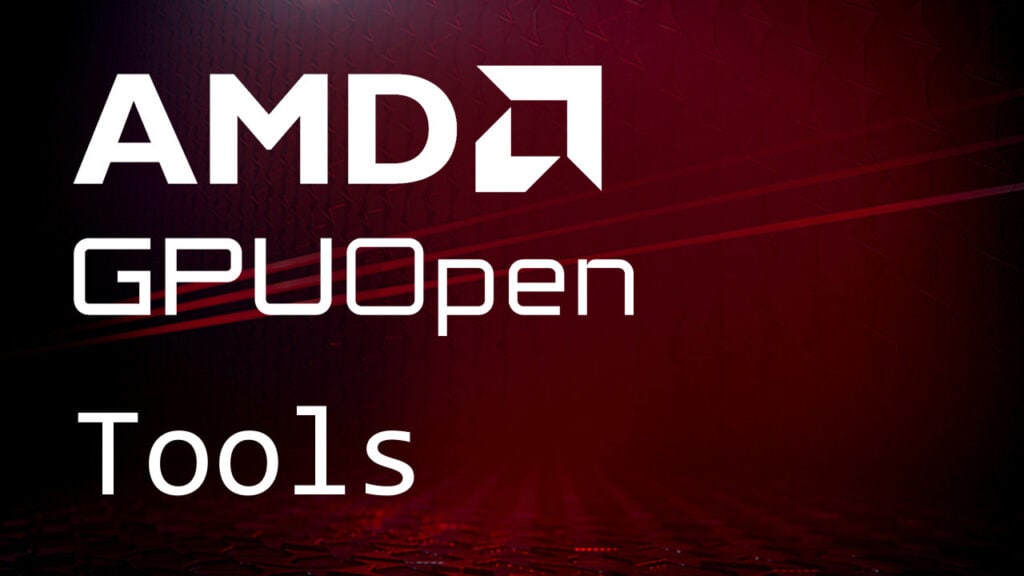AsyncEventHandling
Demonstrates how to handle long processing for an event on a separate thread when programming with ADLX.
Sample Path
/Samples/C/ReceivingEventsNotifications/AsyncEventHandling
Code
//
// Copyright (c) 2021 - 2025 Advanced Micro Devices, Inc. All rights reserved.
//
//-------------------------------------------------------------------------------------------------
#include "SDK/ADLXHelper/Windows/C/ADLXHelper.h"
#include "SDK/Include/IDisplay3DLUT.h"
#include "SDK/Include/IDisplayGamma.h"
#include "SDK/Include/IDisplayGamut.h"
#include "SDK/Include/IDisplays.h"
#include <windows.h>
// Handle thread
HANDLE thread = NULL;
// Gamut changed event
HANDLE gamutChangedEvent = NULL;
// Work thread
DWORD WINAPI WorkThread(LPVOID lpParam)
{
// Some time-consuming operations
Sleep(5000);
IADLXDisplayGamutChangedEvent* gamutChanged = (IADLXDisplayGamutChangedEvent*)(lpParam);
printf ("On the asynchronous thread: Thread Id: %d : After the time-consuming operations, get the display gamut changed event:\\n", GetCurrentThreadId());
printf("\\tColor space change: %d\\n\\tWhite point change: %d\\n",
gamutChanged->pVtbl->IsColorSpaceChanged(gamutChanged),
gamutChanged->pVtbl->IsWhitePointChanged(gamutChanged));
// Release the interface when the task is completed.
gamutChanged->pVtbl->Release(gamutChanged);
SetEvent(gamutChangedEvent);
return 0;
}
// CallBack for displayGamut
adlx_bool ADLX_STD_CALL OnDisplayGamutChanged(IADLXDisplayGamutChangedListener* pThis, IADLXDisplayGamutChangedEvent* pDisplayGamutChangedEvent)
{
// Acquire the interface before passing to the asynchronous thread
pDisplayGamutChangedEvent->pVtbl->Acquire(pDisplayGamutChangedEvent);
thread = CreateThread(NULL, 0, WorkThread, pDisplayGamutChangedEvent, 0, NULL);
// Returns true will make ADLX continue to notify next listener or false to stop to notify
return true;
}
// CallBack struct for displayGamut
typedef struct DisplayGamutCallBack
{
adlx_bool(ADLX_STD_CALL* OnDisplayGamutChanged)(IADLXDisplayGamutChangedListener*, IADLXDisplayGamutChangedEvent*);
} DisplayGamutCallBack;
// Wait for exit with error message
int WaitAndExit(const char* msg, const int retCode)
{
// Printout the message and pause to see it before returning the desired code
if (NULL != msg)
printf("%s\\n", msg);
system("pause");
return retCode;
}
int main()
{
// Define return code
ADLX_RESULT res = ADLX_FAIL ;
// Initialize ADLX
res = ADLXHelper_Initialize();
if (ADLX_SUCCEEDED (res))
{
// Create event
gamutChangedEvent = CreateEvent(NULL, TRUE, FALSE, NULL);
// Get system services
IADLXSystem* sys = ADLXHelper_GetSystemServices();
// Get display service
IADLXDisplayServices* displayService = NULL;
res = sys->pVtbl->GetDisplaysServices(sys, &displayService);
if (ADLX_SUCCEEDED (res))
{
// Get display change handling
IADLXDisplayChangedHandling* displayChangeHandl = NULL;
res = displayService->pVtbl->GetDisplayChangedHandling(displayService, &displayChangeHandl);
if (ADLX_SUCCEEDED (res))
{
DisplayGamutCallBack* displayGamutCallBack = (DisplayGamutCallBack*)malloc(sizeof(DisplayGamutCallBack));
displayGamutCallBack->OnDisplayGamutChanged = &OnDisplayGamutChanged;
// ADD callback to the handl
ADLX_RESULT addListenerRes = ADLX_FAIL ;
{
addListenerRes = displayChangeHandl->pVtbl->AddDisplayGamutEventListener(displayChangeHandl, (IADLXDisplayGamutChangedListener*)&displayGamutCallBack);
}
// Set gamut for the first display
IADLXDisplayList* displays = NULL;
displayService->pVtbl->GetDisplays(displayService , &displays);
adlx_uint it = 0;
IADLXDisplay* display = NULL;
displays->pVtbl->At_DisplayList(displays, it, &display);
IADLXDisplayGamut* dispGamut = NULL;
res = displayService->pVtbl->GetGamut(displayService, display, &dispGamut);
res = dispGamut->pVtbl->SetGamut_PW_PG(dispGamut, WHITE_POINT_5000K , GAMUT_SPACE_CIE_RGB );
printf("set gamut ret: %d\\n", res);
if (ADLX_SUCCEEDED (res))
{
printf("This will trigger gamut change and send gamut change in thread: %d\\n", GetCurrentThreadId());
}
if (NULL != dispGamut)
{
dispGamut->pVtbl->Release(dispGamut);
}
if (NULL != display)
{
display->pVtbl->Release(display);
display = NULL;
}
if (NULL != displays)
{
displays->pVtbl->Release(displays);
displays = NULL;
}
if (ADLX_SUCCEEDED (addListenerRes))
{
// Wait for gamut change
WaitForSingleObject(gamutChangedEvent, INFINITE);
CloseHandle(thread);
// Remove and destroy callback
res = displayChangeHandl->pVtbl->RemoveDisplayGamutEventListener(displayChangeHandl, (IADLXDisplayGamutChangedListener*)&displayGamutCallBack);
if (ADLX_FAILED (res))
printf("Remove display gamut event listener failed\\n");
}
if (NULL != displayGamutCallBack)
{
free(displayGamutCallBack);
displayGamutCallBack = NULL;
}
}
// Release the displayChangeHandl interface
if (NULL != displayChangeHandl)
{
displayChangeHandl->pVtbl->Release(displayChangeHandl);
displayChangeHandl = NULL;
}
}
// Release the displayService interface
if (NULL != displayService)
{
displayService->pVtbl->Release(displayService);
displayService = NULL;
}
}
else
{
return WaitAndExit("ADLX initialization failed", 0);
}
// Destroy ADLX
res = ADLXHelper_Terminate();
printf("Destroy ADLX result: %d\\n", res);
// Close event
if (gamutChangedEvent)
CloseHandle(gamutChangedEvent);
// Pause to see the print out
system("pause");
return 0;
}



